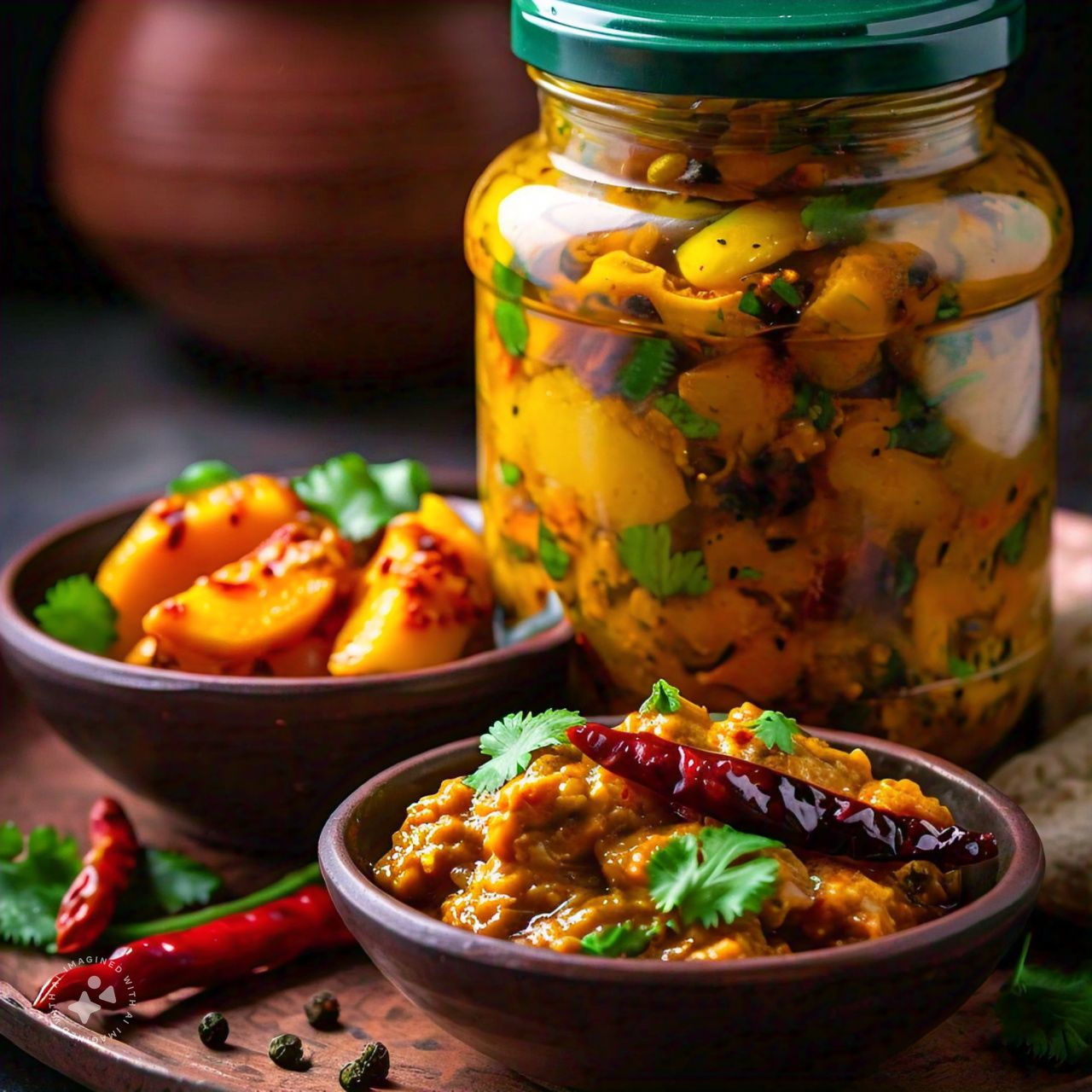Pickle Masala is an essential ingredient in creating the perfect pickle, elevating the flavors of fruits and vegetables into mouth-watering delicacies. This guide covers everything you need to know about mild pickle masala, including its benefits, uses, and some great cooking tips. We will also delve into environmental impacts, how to avoid food waste, and why this spice blend should be a staple in every kitchen.
What is Pickle Masala?
A Flavorful Spice Blend
Pickle Masala is a special blend of spices used to prepare Indian pickles (also known as achar). This spice mix varies regionally, but it typically includes ingredients like mustard seeds, fennel seeds, cumin, turmeric, fenugreek, and chili powder. In a mild version of pickle masala, the heat from chilies is subdued, making it ideal for those who prefer less spiciness in their food.
- Primary Keywords: Pickle Masala, Mild Pickle Masala, Spice Blend for Pickles
- Secondary Keywords: Benefits of Pickle Masala, Uses of Pickle Masala, Mild Pickle Recipes
Benefits of Mild Pickle Masala
Why Choose Mild Pickle Masala?
The mild version of pickle masala offers a more subtle, balanced flavor, making it suitable for everyone, including those sensitive to strong spices. Here’s why it should be part of your kitchen:
- Rich in Antioxidants: The spices in pickle masala, like turmeric and cumin, are rich in antioxidants that help combat free radicals in the body.
- Supports Digestion: Ingredients like fenugreek and cumin are known for their digestive properties, helping with bloating and indigestion.
- Natural Preservative: The salt and oil used in the preparation of pickles, along with the preservative properties of mustard and turmeric, help extend shelf life without artificial additives.
How to Use Mild Pickle Masala
Versatile Culinary Uses
Pickle Masala is not just limited to traditional pickles. Here are some creative ways to use it:
- Marinate Vegetables: Use it as a marinade for vegetables like carrots, cauliflower, and potatoes. Just coat the veggies with the masala, let it sit for a few hours, and then roast them.
- Spicy Rice Dishes: Add a teaspoon of mild pickle masala to your rice dishes like lemon rice or curd rice for an added zing.
- Flavor for Sandwiches and Wraps: Sprinkle a small amount on wraps, sandwiches, or even salads to enhance the flavor.
- Homemade Pickles: Of course, the traditional use for pickle masala is making your own pickles with fruits and vegetables of your choice.
Cooking Tips for Using Mild Pickle Masala
- Balance the Spices: If the masala feels too strong, adjust it by adding extra salt, sugar, or vinegar for a balanced flavor.
- Consistency is Key: The masala should be mixed with oil to create a consistent paste-like texture, ensuring better absorption in the food.
- Proper Storage: Store the prepared pickle masala in an airtight container in a cool, dry place to retain its freshness for longer periods.
Environmental Impact of Food Waste
Reducing Food Waste with Pickle Masala
Pickles made with mild pickle masala not only enhance food but also help reduce food waste. Here’s how:
- Preservation of Leftover Vegetables and Fruits: Pickling is a great way to preserve fruits and vegetables that might go bad quickly. This practice helps reduce food wastage.
- Sustainable Use of Resources: By using natural ingredients and avoiding processed preservatives, pickles made with mild pickle masala contribute to more sustainable food practices.
Food Waste Statistics
- According to the Food and Agriculture Organization (FAO), 1.3 billion tons of food is wasted globally each year, which is roughly one-third of all food produced. By pickling leftover vegetables, we can minimize this waste.
Popular Seasonal and Holiday Uses of Pickle Masala
Pickle Masala for Special Occasions
Pickle masala is an integral part of many Indian festivals and holidays. Here’s how you can incorporate it into your celebrations:
- During Diwali: Pickles are often served alongside festive meals. A mild pickle masala can be used to make tangy mango or mixed vegetable pickles.
- Holi Celebrations: During Holi, pickles add extra flavor to the rich, indulgent foods consumed. A mild, spicy version can be used to balance out the sweetness of other dishes.
- Winter Feasts: In colder months, pickles are perfect for pairing with hearty meals, offering both taste and digestive benefits.
FAQs: All You Need to Know About Mild Pickle Masala
Frequently Asked Questions
Q1: Can I adjust the spice level of mild pickle masala?
A1: Yes, you can always customize the spice level by adding or reducing chili powder or mixing in milder spices such as cinnamon and clove.
Q2: How long does homemade pickle masala last?
A2: When stored properly in an airtight container, homemade pickle masala can last up to 6 months without losing its flavor.
Q3: Is pickle masala suitable for vegans?
A3: Yes, most pickle masala blends are plant-based and vegan-friendly. Ensure there are no animal-derived ingredients like dairy or ghee added.
Comparison: Pickle Masala vs. Store-Bought Pickles
Why Choose Homemade Over Store-Bought?
- Control Over Ingredients: With homemade pickle masala, you control the ingredients, avoiding preservatives or artificial flavor enhancers often found in store-bought versions.
- Customizable Flavor: Homemade masala lets you adjust the spice level, tanginess, and saltiness according to your taste preferences.
- Healthier Option: You can use organic or fresh ingredients in homemade pickles, providing better nutritional value than pre-packaged ones.
Conclusion: Add Flavor with Mild Pickle Masala
Pickle masala – mild in flavor yet rich in health benefits – is a great way to spice up your meals while reducing food waste. Whether you are using it to make traditional pickles, add flavor to dishes, or preserve fruits and vegetables, it’s a versatile and sustainable choice.





Share:
Pickle Masala - Hot: A Spicy Delight to Enhance Your Culinary Creations
Exploring Thai Green Curry Powder: Benefits, Uses, and More